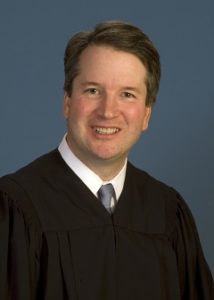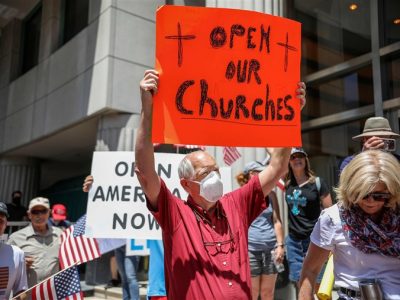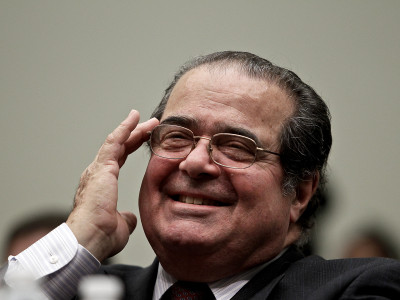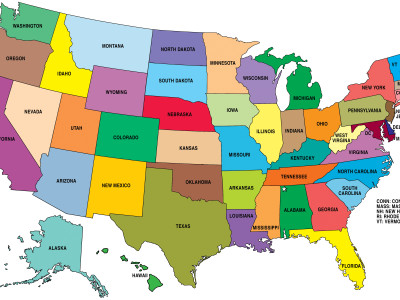constitutional law
Badly Drafted and Constitutionally Suspect
New laws blacklist “discrimination” against fossil fuel companies in states that normally could care less about discrimination of any kind.
Texas and a number of other states have passed laws banning what they call “boycotts of fossil fuel companies.” More precisely, they ban state investment or contracting with firms that “boycott” fossil fuel companies. Besides being fundamentally misguided and difficult to implement, these blacklist laws are poorly drafted and quite likely unconstitutional. The “fundamentally misguided” …
Continue reading “Badly Drafted and Constitutionally Suspect”
CONTINUE READINGThe Nondelegation Doctrine and Its Threat to Environmental Law
Here’s what the doctrine means and why it has suddenly become so significant.
If you ask Supreme Court experts what keeps them up at night, the answer is likely to be the non-delegation doctrine. If you are among the 99.9% of Americans who’ve never heard of it, here’s an explainer of the doctrine and what the 6-3 Court might do with it. What’s the nondelegation doctrine? Simply put, …
Continue reading “The Nondelegation Doctrine and Its Threat to Environmental Law”
CONTINUE READINGThe Kavanaugh Court and the Environment
A new appointment would make Justice Kavanaugh the swing voter. Here’s what that would mean for environmental law.
A new appointment by Trump would shift the Supreme Court well to the right, making Brett Kavanaugh the swing voter in many cases. Kavanaugh has clear views about the powers of agencies like EPA. With him as the swing voter, the main strategy used by Obama to make environmental progress would be off limits for …
Continue reading “The Kavanaugh Court and the Environment”
CONTINUE READINGConstitutional Rights in a Pandemic
When does public health override individual rights?
Lockdowns and social distancing impinge on activities that are protected by the Constitution. That’s been true in many states of church services and in some states of abortion. When the cases have come before they courts, they have often turned to a 1905 Supreme Court case decision, Jacobson v. Massachusetts, which upheld a state law …
Continue reading “Constitutional Rights in a Pandemic”
CONTINUE READINGOn This Date in History: Property Rights Won Big in the Supreme Court
June 29, 1992 was a great day for property rights advocates. But what came later wasn’t so good.
On this date in 1992, the property rights movement achieved its greatest victory in the form of the Supreme Court’s Lucas ruling. The campaign to protect property rights seemed to have huge momentum. But things didn’t work out that way. For property rights advocates, Lucas turned out to be a false dawn. Mr. Lucas owned …
Continue reading “On This Date in History: Property Rights Won Big in the Supreme Court”
CONTINUE READINGThe Coronavirus and the Commerce Clause
Could Congress mandate CORVID-19 vaccinations? Not if you take some Supreme Court opinions seriously.
If we get a vaccine against a national epidemic, could Congress pass a law requiring everyone to get vaccinated? That very question was asked during the Supreme Court argument in the 2012 constitutional challenge to Obamacare’s individual mandate. The lawyer challenging Obamacare said “no, Congress couldn’t do that.” What’s shocking is that this may have …
Continue reading “The Coronavirus and the Commerce Clause”
CONTINUE READINGDoes the Constitution Exempt Churches from Social Distancing?
Short answer: “No.” And it might even be unconstitutional for states to grant such exemptions.
Most religious groups have willingly complied with public health limits on large gatherings. But not all. These claims of religious exemption, and some states’ responses to them, raise important constitutional issues. There have been a couple of cases in the spotlight. Rodney Howard-Browne is a Florida preacher who prayed over Trump in the Oval Office …
Continue reading “Does the Constitution Exempt Churches from Social Distancing?”
CONTINUE READINGFederalism and the Pandemic
For statutory, practical, and constitutional reasons, states are on the front line.
The states have been out in front in dealing with the coronavirus. Apart from Trump’s tardy response to the crisis, there are reasons for this, involving limits on Trump’s authority, practicalities, and constitutional rulings. Statutory limits. As I discussed in a previous post, the President’s power to deal with an epidemic is mostly derived from …
Continue reading “Federalism and the Pandemic”
CONTINUE READINGFrom the Grand Canyon to Contaminated Cantaloupes – and More
Five books with fresh perspectives on environmental issues.
Law reviews make little effort to track new books, unlike other journals in other disciplines . So it’s pretty much hit-or-miss whether you learn about relevant new books. I wanted to share some interesting finds that have crossed my desk, joined a growing pile of unread books, and then slowly left the pile. The subjects …
Continue reading “From the Grand Canyon to Contaminated Cantaloupes – and More”
CONTINUE READINGThreat Assessment: The Supreme Court & the Environment
The current bench is tilted against environmental regulation. It could get worse.
In September, Take Back the Court issued a study entitled, “The Roberts Court Would Likely Strike Down Climate Change Legislation.” In my view, that’s too alarmist. But the current conservative majority definitely will be an obstacle to aggressive use of government regulation. That could hold true well into the 2030s, depending on who leaves the …
Continue reading “Threat Assessment: The Supreme Court & the Environment”
CONTINUE READING









